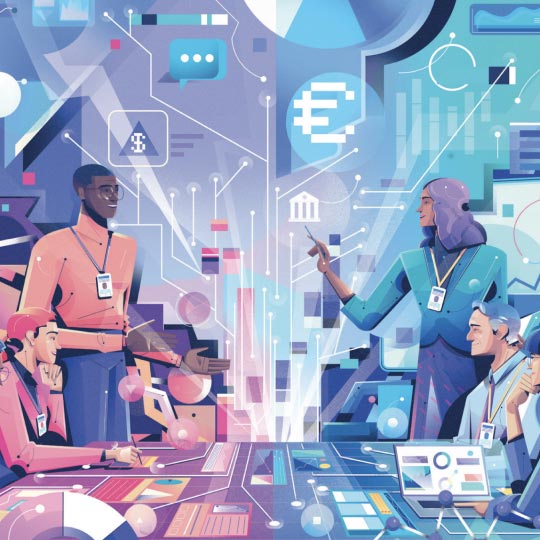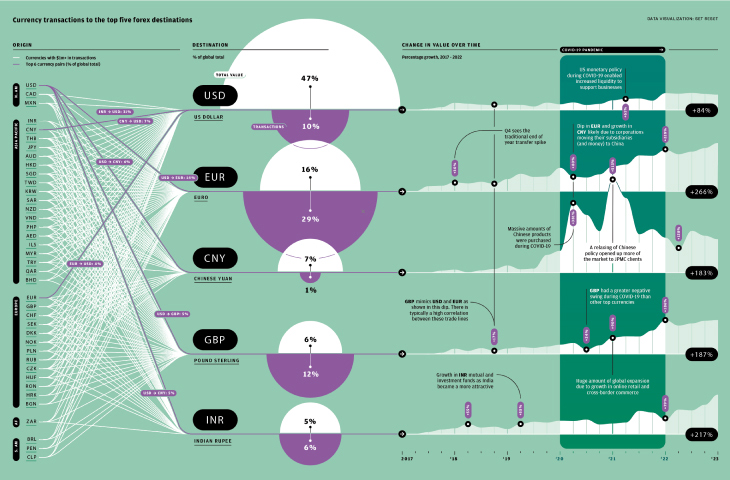For Companies and Institutions
-
Commercial Banking
We provide credit, financing, treasury and payment solutions to help your business succeed. We also offer best-in-class commercial real estate services for investors and developers.
-
Global Corporate Banking
We help clients achieve their long-term strategic goals through financing, liquidity, payments, risk management and investment banking solutions.
-
Investment Banking
Providing investment banking solutions, including M&A, capital raising and risk management, for a broad range of corporations, institutions and governments.
-
Institutional Investing
We support the entire investment cycle with market-leading research, asset management, analytics, execution, and investor services.
-
Payments
Your partner for commerce, receivables, cross-currency, working capital, blockchain, liquidity and more.
Key Links
For Individuals
-
Wealth Management
With J.P. Morgan Wealth Management, you can invest on your own or work with an advisor to design a personalized investment strategy. We have opportunities for every investor.
-
Private Bank
A uniquely elevated private banking experience shaped around you.
Explore a variety of insights.
Key Links
Insights by Topic
Explore a variety of insights organized by different topics.
Key Links
Insights by Type
Explore a variety of insights organized by different types of content and media.
Key Links
We aim to be the most respected financial services firm in the world, serving corporations and individuals in more than 100 countries.
Key Links
- Payments
- Payments Unbound
- Payments Unbound - The digital magazine
- Payments Unbound Articles
- Developer Experts Answer Paytech Questions
Featuring future-thinking clients
Payments Unbound unites clients from a wide range of industries to bring you innovative insights that help you navigate the future of payments.
Ask a dev!
Communities
Developers (devs) are the backbone of payments technology, building the systems that process billions of digital transactions every day. With 81% of companies1 struggling to keep up with the pace of change in tech, devs have a wealth of knowledge to share on this increasingly strategic area.
We spoke to some of the most forward-thinking developers to hear their takes on four key paytech questions that are front of mind for business leaders.

Adam Elbaz
General Manager, Consumer Banking, BiltFor any company considering building a paytech solution themselves, I’d ask, ‘What is the differentiated value you’re trying to add?’
Going it alone, by developing products and solutions in-house, is often seen as the most cost-effective route for a really bespoke experience. But if it’s simply a question of economics—and you’re not after something truly unusual—then it may be more affordable to go to a third party. Payments are complex, and you have to factor in all the engineering and expertise that goes into making a simple, reliable and user-friendly solution.
Say you’re a real estate company. Your core competency lies in delivering a seamless living experience, not payments technology. But you may want to enable your tenants to pay their rent in multiple different ways to minimize the risk of missed payments. Building a solution that allows them to pay with ACH, with credit card, with check, with cash, etc., and then making it easy for the property management company to reconcile all these different payments in a single location, requires an incredible amount of technical skill.
In that instance, it may be better to ask a payment service provider to dedicate specialized engineers to handle the complexity.”

Asha Chakrabarty
Vice President of Product, Builder Experiences, TwilioWith the explosive growth of both digital-first payments and AI, the two are being integrated with exciting results. We are witnessing rapid upgrades to customer experience, for example. As an individual, you can now make payments and get 24/7 support from an AI-based virtual assistant if you encounter a problem.
In this environment, the question of ethical AI is an important consideration when we build and develop these products. ‘Ethical’ AI can mean many things. For Twilio, a vital element when integrating AI with payments is understanding where your data comes from, how it has been handled and how it influences AI decision-making.
This is important for several reasons. First, if the training data contains historical biases and those biases can be replicated or even amplified by AI models, it can be difficult to identify or mitigate these biases. Similarly, in payment systems, errors or opaque decisions can quickly erode user trust.
Secondly, regulators may require detailed documentation of the data and models involved when AI makes payment decisions (e.g., fraud detection, credit scoring, dynamic pricing). Without clear data lineage, it’s difficult to demonstrate compliance or defend decisions.
In short, successful AI integration in payments isn’t just about powerful models—it hinges on disciplined data management. This is why I urge businesses to ask any prospective developer what their communication and payments models are built upon. Likewise, if you’re building paytech tools in-house, striving for unbiased, transparent AI systems is something I strongly advise business leaders to keep in mind.”

Chaitanya Varanasi
Advisory Solutions Consultant, MongoDBHuman identity verification is a significant payments security issue for which business leaders should be seeking developer solutions. As AI gets more and more sophisticated, the Turing test is now yesterday’s test.
The key payments security question soon will be: ‘Are you human—and are you the correct human that’s performing this action?’ Business leaders should prioritize asking developers to ensure advanced biometric authentication and identity authentication for any payments system they onboard.
Another big security issue is supply chain vulnerabilities. The simple—but vital—questions to be able to answer are: ‘How is money flowing through the system we are a part of, and how are we observing and accounting for it?’ It is essential to understand and be aware of the payments ecosystem you are operating in. This is where strong relationships and partnerships are important.
In addition, having oversight and understanding other business functions can be important internally, too. There can be a lot of information siloed within individual departments that, if shared with developers, would help companies progress faster and anticipate security problems.
I’d like to start seeing product councils being created. From both a security and product development perspective, I want to see people coming out of their individual silos and saying, ‘Let’s all get together into a council and let’s aggregate all this information together.’”

Ajay Nair
General Manager, Platform, ElasticThere are three key things businesses can do to create great relationships with developers.
The first is to ensure that business leaders clearly communicate the company’s needs. Too often they might say to a developer, ‘I want an AI experience for my customers.’ Great. But if they’re able to come in and say, ‘My business is preparing for a new product launch in Q4, and we need an AI-enabled assistant to launch at the same time to support our customers to make the best use of this new product’—that is a clear ask that allows developers to engage in a much more practical, solution-oriented manner.
The second key thing is to have experts on the business side who understand the company’s own technology. The more context they have about how their own existing technology stack runs and operates—and about the issues they’ve had—the more effective an external developer can be when they come in to help. They can more quickly add value.
The third quality I notice of companies that collaborate successfully with developers is a willingness to experiment. Being able to enter into a dialogue and keep adjusting and working together to find the right solution is an underrated virtue.
BY J.P. MORGAN PAYMENTS
SOURCES: WWW.JPMORGAN.COM/PAYMENTS-UNBOUND/SOURCES
ILLUSTRATION: SELMAN HOSGOR
MAGAZINE
Volume 6: Open Banking Is Just Getting Started Volume 5: Game Changer Volume 4: Ready Payer One Volume 3: Bank to the Future Volume 2: The New World of Commerce Volume 1: The Money Revolution Browse all articlesWEBINARS
View all webinarsYou're now leaving J.P. Morgan
J.P. Morgan’s website and/or mobile terms, privacy and security policies don’t apply to the site or app you're about to visit. Please review its terms, privacy and security policies to see how they apply to you. J.P. Morgan isn’t responsible for (and doesn’t provide) any products, services or content at this third-party site or app, except for products and services that explicitly carry the J.P. Morgan name.














































































